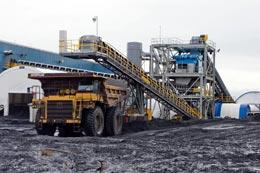The coal story in B.C.

Guest Commentary
By Alan Fryer
Many municipalities and their residents might be surprised by the scale of coal industry spending that goes on in their own backyards, including those in Metro Vancouver far from the mines themselves.
While the 26,000 jobs and $3.2 billion annually in economic activity that the industry is responsible for might be better known publicly, a recent survey of spending by Coal Alliance member mines and terminals reveals that more than half of B.C.’s communities and thousands of businesses across the province were the beneficiaries of $5.16 billion in spending on goods and services between 2010 and 2014.
Across Metro Vancouver, the figure amounted to more than $2.1 billion – spending that generates tax revenue which in turn helps pay for many of the municipal services we depend on.
Among the top Metro Vancouver municipalities benefitting from the spending are Delta at $973.4 million, Vancouver at $461.2 million, Surrey at $191.9 million, North Vancouver at $141.3 million, Burnaby at $130.4 million, Langley at $65.8 million and Richmond at $61.8 million.
Again, these figures represent spending by Coal Alliance member terminals and mines only, and not the entire B.C. coal industry.
Much of this spending is with small and medium-sized businesses that supply equipment, materials and services for daily operations – everything from environmental consultants and equipment manufacturers to local catering services. The economic benefits of coal filter into a huge cross-section of B.C. society.
But the benefits of coal go well beyond the economic arguments. The fact is, we all rely on B.C.’s coal industry in much more direct ways as well. Most of the coal mined here in our province is steel-making coal, and steel is an essential part of our daily lives.
With summer upon us and many families heading out across B.C. on holiday, take a moment and think about it.
Is camping in one of British Columbia’s scenic parks part of your summer plan? Everything from the tent trailer and the car hauling it, to the portable barbeque and the pots and cutlery you’ll eat with has steel in it.
Maybe roughing it isn’t in your plans. Instead you’ll head out onto the ocean or one of the thousands of lakes in B.C. for a little boating or fishing. Think of all the items that need steel, from the boat’s engine to the hooks that will bring in the big catch.
Perhaps you’re planning to stay home, and get out with your kids and cycle around town. While today’s bike frames are made with a variety of different materials, many bike components are made of steel, such as pedals, gears and brake parts.
It could be that relaxing and doing a little backyard gardening is all you plan to do this summer. Well, everything from garden tools to the water faucet at the end of your hose is made with steel.
The point is, steel is part of our everyday lives, and British Columbia’s coal industry is proud of the many contributions it makes, not only to the communities and businesses across our province, but also to the many products that we all rely on.
Alan Fryer is the spokesman for the Coal Alliance, Alan Fryer is with the Coal Alliance, which brings together representatives from the coal industry, including mines, marine terminals, railways, industry associations, organized labour and others who support B.C.’s coal industry.






